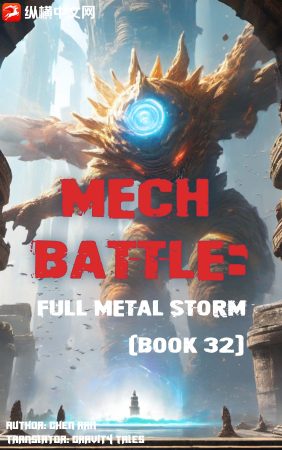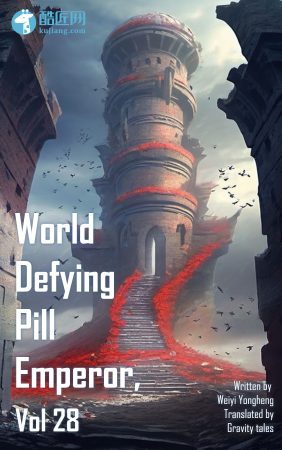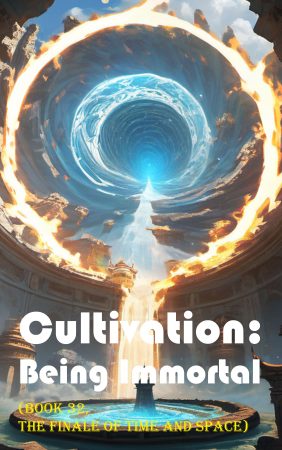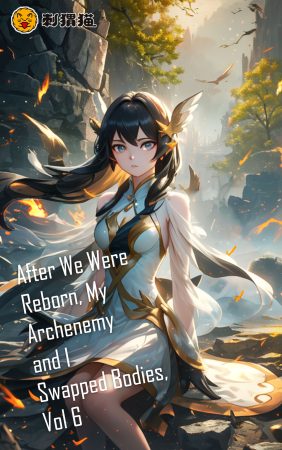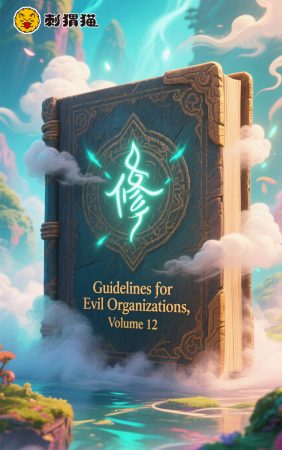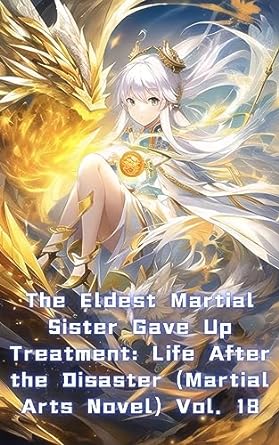Chapter 375
Our Discord Server: https://discord.gg/PazjBDkTmW
You can buy coins here to unlock advanced chapters: https://gravitytales.com/coins-purchase-page/
Chapter 375: Cold as Iron
Her name is Millie.
A very ordinary name, stemming from a very ordinary birth.
She was born into a humble farming family, with parents who earned a living from tilling the land.
It’s said that their ancestors lived well; as long as they worked hard, they could eat well and stay warm.
But over the past few decades, the world around them had changed. The environment had worsened, and relying solely on farming no longer sufficed to support a family.
Taxes grew heavier, disasters increased, the village’s security worsened, wild animals ravaged crops, and monsters roamed freely without any soldiers to hunt them. The idle population was also swelling.
Her mother, desperate, began working in the town and the city, while her brother and sister left home once they were old enough, so as not to burden the family.
Millie grew up in these harsh conditions, her childhood relatively peaceful with the presence of her family. Yet, she often wondered what the world beyond the village was like, and dreamed of seeing the king’s city in the empire.
She never received much formal education and learned to read and write mostly on her own. She had dreams, but no clear path forward.
That is, until one day, a group of mercenaries arrived.
There were only five of them, all young. The leader, a mage with black hair, wore robes that seemed magical. He was youthful but mature, perhaps only a few years older than Millie.
At first, the villagers were suspicious of them, thinking the mercenaries had come to demand money for driving off monsters and wild animals. But the village was poor, unable to afford such services, especially with the village mayor already demanding heavy taxes.
Millie’s father warned her to stay away from them, and she obeyed.
However, after the mercenaries visited the village chief’s house, they didn’t demand money. Instead, they quietly set up camp outside the village. Millie, curious, heard the sound of music — soft, enchanting melodies, like the songs of wandering minstrels. It captivated her instantly.
Drawn to the music, she approached, and as she did, the black-haired mage noticed her. He smiled, a gentle, charming smile that Millie had never seen before.
She froze, mesmerized, and ended up sitting down, listening to the music until it finished. Afterward, they talked, and he shared a delicious meal that left her almost speechless with delight.
She learned they were mercenaries from the capital. She wondered why they had come to such a remote village, which seemed to have nothing of value.
The young mage smiled and simply said, “Because you can’t enjoy yourselves anymore, so we’re here to help.”
He spoke so casually, and though Millie didn’t fully understand, his words lingered in her mind.
In less than a week, the village transformed.
The mercenaries had cleared out the roaming monsters and destroyed their nests. While the other four mercenaries — all young women — went out and battled monsters with fierce skill, the young mage didn’t fight. Instead, he walked from house to house with his staff, gathering villagers for meetings. He brought seeds, recommended better varieties of rice, and suggested new farming techniques. His advice was clear, confident, and well-received.
Though Millie didn’t understand everything, she enjoyed sitting nearby, watching him speak. She loved simply seeing him, hearing his voice, feeling fulfilled just by his presence.
The villagers believed he must be a scholar, so wise and kind was he. But not all were kind in their words. Some criticized him, questioning his advice.
Yet, he remained humble, patient. Over two weeks, he patiently convinced even the most stubborn villagers, offering knowledge not only about farming but also livestock care and medicine. He personally helped in the fields and even cooked elegant meals for them.
Millie’s favorite part was the nightly school he ran. In just a few weeks, many villagers had learned to read and write basic words. He watched Millie learn quickly and, as a reward, gave her a dictionary.
Eventually, the mercenaries moved on, leaving the village to continue their journey.
On the day they left, Millie cried uncontrollably, overcome with grief. She thought she would never see them again, especially the young mage.
Three years passed.
Thanks to the mercenaries’ teachings, the village’s fortunes had turned around. The people no longer faced poverty; they had enough food, better grain crops, and knowledge to prepare for the future. But their newfound prosperity attracted attention.
Heavy taxes and exploitation followed. The mayor, the knight’s order, and the noble aristocrats descended on the village like a storm, destroying the villagers’ hard-won wealth. The village chief begged on his knees, but was trampled by horses.
The villagers, enraged, tried to seek justice, but they were seen as a riot. The nobles raised an army and attacked. In the chaos, Millie was separated from her parents. Her mother tragically jumped into a well and died, while her father was captured and executed.
When Millie returned to the village a week later, she found it in ruins.
Weak from illness and hunger, she closed her eyes, waiting for death.
But death did not come.
When Millie awoke, she saw a familiar face — the young mage, now a young man.
Relief washed over her, but then intense anger followed. She shouted, asking why he hadn’t come sooner.
Her words were full of pain, not a desire for revenge, but a desperate, confused hurt. She regretted her outburst as soon as it left her mouth.
Yet the young man didn’t blame her. He took her hand and, with sincerity, apologized.
Millie cried.
When she woke up again, she found herself surrounded by the mercenaries. This was no longer a small group, but a large army of over a thousand people, diverse in race, age, and gender. Even Dragonborn and other outcasts were part of the group.
The young man, still gentle and smiling, stood at the center of the group, respected by all.
He approached Millie and asked, “Do you want to come with me, or stay here and rebuild your hometown?”
Millie hesitated, unsure of what to do.
He asked again, “Do you want revenge?”
Millie, though angry, knew that revenge would only lead to more destruction. Killing the mayor would provoke the nobles, harming everyone.
The young man smiled, his words firm, “Then let’s rebel.”
Those words, simple yet powerful, would never leave Millie’s mind.
He said, “If even the purest people cannot survive, what use is keeping such a country?”
Once again, he spoke as if it were nothing, “Because you can’t live happily, so we’re here to help.”
The young man stormed into the town, defeated the seemingly invincible cavalry, and captured a wealthy noble, hanging him in front of tens of thousands of people.
As he hung the first noble, the ordinary villagers saw a god brought to justice.
Millie joined the young man’s cause, starting as a simple soldier. She had some strength, but lacked the natural talent of other races. As a warrior, she was average, but her knowledge of medicine made her a medic. She learned spells and formed a medical team, growing alongside the resistance.
But, despite her growth, she remained an ordinary person. In a world where anyone could be lost, Millie wasn’t the chosen one.
During one battle, she rushed into a collapsing building to save survivors. The structure fell, crushing her. Her bones shattered, piercing her lungs. She coughed up blood, enduring unimaginable pain.
She held on for as long as she could. When the debris was cleared, she was sent for treatment, but she knew her wounds were fatal.
The girl who had saved so many lives now met her own end.
In her final moments, she heard that familiar gentle voice again.
She opened her eyes, and there he was, standing beside her bed. She reached out shakily, and he gently held her hand, just like all those years ago.
Millie forced a smile, “You came…”
The young man nodded, “Mm.”
“I’m lucky to have met you…”
“Mm.”
“We will succeed, but I can’t be with you until the end…”
“Mm.”
“Please… don’t forget me.”
“Mm…”
As she closed her eyes, Millie thought that if she could die like this, she would have no regrets.
Perhaps there was one last thing left: she wished she could see the wheat fields of her hometown one last time, to see how tall they had grown. They must be beautiful.
And then, she was gone.
The young man remained silent, pressing his forehead to hers for a long moment. Time passed — twenty seconds, maybe thirty — before he let go of her hand.
The weight of grief did not show on his face. He had lost before, and would lose again. No matter how much pain, it would not soften his heart.
Someone had to bear the cost.
He walked outside, looking up at the sky, his steps slower, heavier than before, but his heart still cold as iron.



